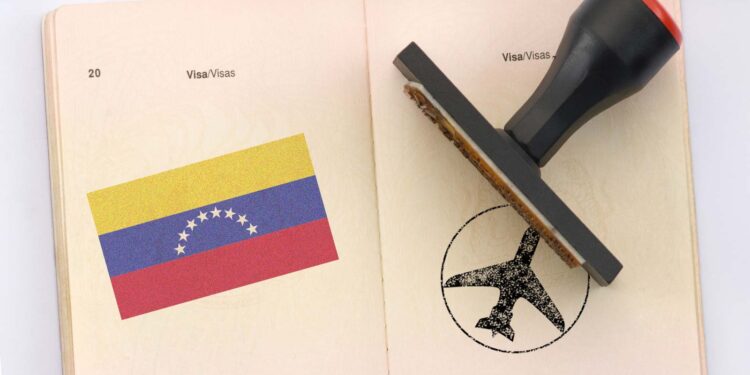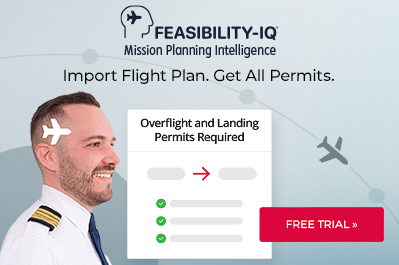Business Aviation in Venezuela Series: Customs, Immigration, and Quarantine

This is a post by author Walter Lindo. Walter is Managing Director for Universal Aviation Venezuela – Caracas. Walter is an expert on business aircraft operations in Venezuela and can be contacted at walterlindo@universalaviation.aero.
This business aviation blog post is part of a series on operating in Venezuela and continues from our last article: “Business Aviation in Venezuela Series: Airport Operations.”
Customs, Immigration, and Quarantine (CIQ) procedures are relatively quick and trouble-free in Venezuela. For best results, however, there is no substitute for diligent pre-trip planning and awareness of regulatory nuances when operating to Venezuela.
The following is an overview of what you need to know about CIQ when operating to Venezuela:
1. What are passenger procedures for clearing CIQ?
Your ground handler will transport all passengers, luggage, and one crew member to the terminal for CIQ clearance. At Caracas (SVMI) they’ll clear at the General Aviation Terminal (GAT), or at other airports they’ll clear in separate lines at commercial terminals. In either case one crew member stays with the aircraft in case airport authorities want to check the aircraft. As passengers wait in line, the ground handler will provide their passports to officials. Customs clearance process usually takes about 15 minutes. Should passengers require currency exchange, a local agent will escort them to the appropriate area. After clearance the ground handler escorts the passengers to pre-arranged transport and takes crew members who have not yet cleared CIQ back to the aircraft.
2. When do the crew clear?
When all crew are ready to leave the airfield, the ground handler transports them to the GAT – in the case of SVMI – or to the commercial terminal at other airports to clear CIQ.
3. Is customs clearance required for tech stops?
As long as no one is embarking or disembarking, customs clearance is not required for international tech stops. At SVMI, the entire tech stop process can be completed in 30-40 minutes, assuming operators provide ground handlers with sufficient advance notice of the estimated time of arrival.
4. What documentation and fees are required?
Arrival and departure forms are required by customs. Your ground handler will complete these in advance, if information has been forwarded ahead of arrival. International arrivals, to any airport in Venezuela, require 22 copies of the general declaration (gen dec). Ground handlers take care of gen dec distribution for operators, assuming all information has been supplied in advance. Authorities may require additional documentation upon landing, so it’s best practice to have crew licenses, medical certificates, and all aircraft documentation readily available. There are fees associated with clearing CIQ in Venezuela, and fees vary somewhat depending on time of day and holiday periods. Ground handlers normally settle these fees on behalf of operators and include customs receipts with ground handling invoices.
As of March 19, 2014, there are new regulations for SVMI clearances. Specifically, all arriving aircraft must wait until the ground handler, along with the National Guard official, arrive at the parked aircraft before opening the door. If the door is opened prior to their arrival, the ground handler will be sanctioned. It’s important to note that there will be times when the National Guard official will arrive late as he/she has to complete this process on a first-come-first-served basis for all arriving aircraft. Please note that this is not something the ground handler can control. Once the National Guard official arrives, he/she will inspect the aircraft, prior to passengers disembarking the aircraft. This inspection will also be completed upon departure.
5. Can CIQ be cleared onboard?
Onboard customs clearance is only possible in Venezuela for diplomatic flights – when arranged in advance via the appropriate embassy – and for air ambulance flights with patients not able to go through the terminal. Your ground handler will assist with these arrangements.
6. Are there agricultural restrictions to consider?
Venezuela is less restrictive than most states in terms of allowing in-flight catering and other food products into the country. Normally, any catering brought onboard will be allowed into Venezuela, although there may be some restrictions on uncooked meat and certain dairy products. It’s always best to double-check agricultural restrictions in advance with your ground handler. It should be noted that diplomatic flights have no restrictions on entry of agricultural items into the country. If you’re traveling with a pet, be sure to have a current veterinary certificate. This certificate must be “apostilled” – in your home country or state – to meet Venezuelan regulations. Always confirm pet entry requirements with your 3rd-party provider or ground handler. If an animal is not properly documentedand approved for entry, it will be quarantined.
Closing thoughts
Be sure to provide your ground handler with all necessary documentation – and keep your handler up to date on any changes to schedule, itinerary, or passenger count – to ensure a smooth and trouble-free trip.
Questions?
If you have any questions about this article or would like assistance planning your next trip to Venezuela, contact me at walterlindo@universalaviation.aero.
Later, we’ll discuss fuel, security, and additional services for Venezuela and their impact on your trip.




